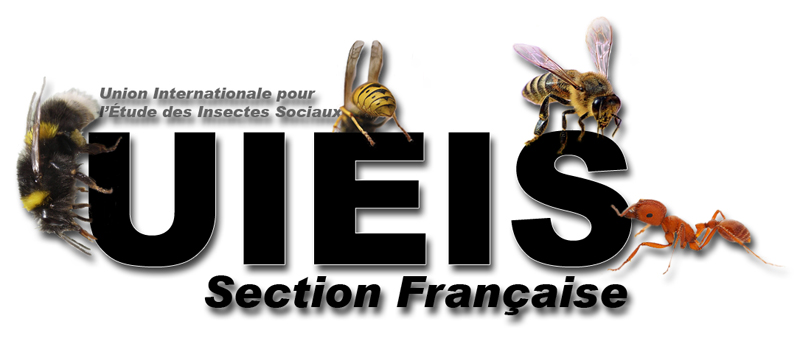
PhD position: Genomic basis of honeybee foraging and decision-making
Application deadline: 1st April 2018
We invite applications for a 3-year DFG (German Research Foundation) funded PhD position (65% TVL
E13) at the Johannes Gutenberg University of Mainz, Germany. We are looking for a highly motivated
student to study the genomic basis of honeybee foraging behaviour. Honeybees exhibit sophisticated
communication and decision-making processes. Their behaviour is highly flexible and is shaped by recent
foraging experiences. However, the genomic and transcriptomic basis of decision-making in foraging bees
is not well understood. The PhD project will investigates if and how the expression of behavioral genes
in the brain affects foraging and decision-making. The successful applicant will perform behavioural
experiments with free-flying bees, pharmacological treatments of bees, brain dissections and gene expression analysis using bioinformatic tools.
E13) at the Johannes Gutenberg University of Mainz, Germany. We are looking for a highly motivated
student to study the genomic basis of honeybee foraging behaviour. Honeybees exhibit sophisticated
communication and decision-making processes. Their behaviour is highly flexible and is shaped by recent
foraging experiences. However, the genomic and transcriptomic basis of decision-making in foraging bees
is not well understood. The PhD project will investigates if and how the expression of behavioral genes
in the brain affects foraging and decision-making. The successful applicant will perform behavioural
experiments with free-flying bees, pharmacological treatments of bees, brain dissections and gene expression analysis using bioinformatic tools.
Students with a Masters degree in Biology and a strong background in behaviour and/or bioinformatics are particularly encouraged to apply. Good English skills and an ability to work as part of a team are
important. Previous experience with honeybees, behavioral experiments, bioinformatics and a knowledge
of German are helpful, but not a prequisite. The working language of our group is English. The Johannes
Gutenberg-University Mainz is interested in increasing the number of women in science. Applications from
women are therefore strongly encouraged. Similarly, qualified candidates with disabilities will be preferred.
The successful applicant will join an international and interactive scientific environment with access
to state-of-the-art, newly equipped laboratories. More information about our research interests and recent
publications can be found here: http://www.bio.uni-mainz.de/zoo/evobio/index_ENG.php. The University
of Mainz hosts many excellent scientific institutions (http://www.uni-mainz.de/eng/) and Mainz is a historic
city located on the Rhine River with a large student population and a rich social and cultural life.
important. Previous experience with honeybees, behavioral experiments, bioinformatics and a knowledge
of German are helpful, but not a prequisite. The working language of our group is English. The Johannes
Gutenberg-University Mainz is interested in increasing the number of women in science. Applications from
women are therefore strongly encouraged. Similarly, qualified candidates with disabilities will be preferred.
The successful applicant will join an international and interactive scientific environment with access
to state-of-the-art, newly equipped laboratories. More information about our research interests and recent
publications can be found here: http://www.bio.uni-mainz.de/zoo/evobio/index_ENG.php. The University
of Mainz hosts many excellent scientific institutions (http://www.uni-mainz.de/eng/) and Mainz is a historic
city located on the Rhine River with a large student population and a rich social and cultural life.
How to apply: applications should include (1) a 1-page cover letter describing your motivation, previous
research activities and current research interests, (2) a CV and (3) the names and email addresses of 2
referees. Send all documents as a single pdf-file before 1st April 2018 to cgrueter@uni-mainz.de and
foitzik@uni-mainz.de. Applications must be written in English. Skype-interviews for short-listed candidates
will be scheduled for mid-April. The ideal start date is June 2018. Informal enquiries can be sent to: Dr.
Christoph Grüter (cgrueter@uni-mainz.de) or Prof. Susanne Foitzik (foitzik@uni-mainz.de), Institute of
Organismic and Molecular Evolution, University of Mainz, Germany.
research activities and current research interests, (2) a CV and (3) the names and email addresses of 2
referees. Send all documents as a single pdf-file before 1st April 2018 to cgrueter@uni-mainz.de and
foitzik@uni-mainz.de. Applications must be written in English. Skype-interviews for short-listed candidates
will be scheduled for mid-April. The ideal start date is June 2018. Informal enquiries can be sent to: Dr.
Christoph Grüter (cgrueter@uni-mainz.de) or Prof. Susanne Foitzik (foitzik@uni-mainz.de), Institute of
Organismic and Molecular Evolution, University of Mainz, Germany.
Dr. Christoph Grüter
Institute of Organismic and Molecular Evolution
University of Mainz
Johannes von Müller Weg 6
Office 02-243
D-55099 Mainz
Germany
phone: +49 (0)6131-3927843
fax: +49 (0)6131-3927850
website: www.socialinsect-research.com
